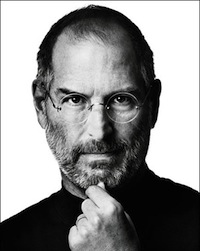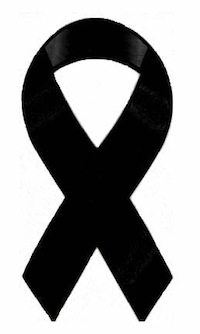 Something bugs me about the public comments after Steve Jobs’ death. Yes, he had pancreatic cancer; yes, it was discovered at such an early stage that an immediate operation might have saved his life. Yes, Jobs initially refused the procedure: he abhorred the notion that somebody would open up his body and fiddle with his insides. Instead, he opted for a strictly vegan diet.
Something bugs me about the public comments after Steve Jobs’ death. Yes, he had pancreatic cancer; yes, it was discovered at such an early stage that an immediate operation might have saved his life. Yes, Jobs initially refused the procedure: he abhorred the notion that somebody would open up his body and fiddle with his insides. Instead, he opted for a strictly vegan diet.
That tidbit of news made him fodder for skeptics. Oh dear: yet another dumbo who believed that ‘alternative’ treatments are more useful than science; yet another woozy-washy believer who threw himself at the mercy of fringe ‘treatments’; yet another victim of the war against rational behavior. How stupid! You can’t cure cancer by positive thinking, or by a diet of soybeans.
But Jobs never said that. He never rejected any part of medical science. Jobs fully accepted the diagnosis and he never doubted that his ailment was indeed a medical condition; nor did he ever distrust or rebel against the proposed treatment as such. He didn’t stall surgery because he did not trust it or did not ‘believe’ in its effectiveness; he stalled because he feared it. He just thought that surgery was his last recourse – not his first. He wanted to try everything else before he submitted to being cut open.
I’m a thoroughbred skeptic. I’ve read lots about medicine, and I abhor the promises of ‘alternative’ medicine. I’ve written a bestseller that debunked new-age quack theories about the origin and treatment of illnesses. I have multiple sclerosis. I have had a brain hemorrhage, which caused temporarily aphasia, paralysis, epilepsy and the mother of all headaches. I have had an aggressive kind of breast cancer, which was treated with amputation, chemo and Herceptin. I don’t fear medical science: I applaud it, and I owe my life to it.
Nevertheless, I am wary of the notion that health comes before everything else. I am not willing to give up all that I like, love, desire and value merely for my physical survival. Why strive to extend your life when that entails giving up all that you cherish? Also, I don’t believe that health mostly depends on your individual life style. (I smoke and I drink; none of my ailments were caused by that.)
I object to treatments that basically stall one’s demise, and I believe that most people – doctors especially– underestimate the impact that a medical regime has upon your daily life. You may live longer after chemotherapy, but much of the time gained is spent on recuperating from the effects of that same therapy. And I’m not quite sure that I would like my remaining months to be punctuated by hospital appointments and dictated by my white cell counts or any other lab results. I’d rather be led by what I really want to do while I still can, and by how I feel, as opposed to how my stats read.
Moreover, I do not subscribe to the notion that risks can (or should) be eliminated. You want me to do hormone therapy for seven years to reduce my risk that this cancer returns by eight percent? Eh…. Have you considered that by now the chances that I am over-treated are already at a massive eighty percent? Also, even with seven years of hormone therapy there’s still a twelve percent chance that my cancer returns. In other words, the chance that hormone therapy will save me is far less than the chance that I’ll die of this cancer no matter what. Really – how far do you propose to go? How many treatments do you want to subject me to? Will you ever stop wanting to treat me, for an increasingly smaller risk? How much overtreatment will you push on me?
Yes, Jobs stalled surgery. I fully understand why. It was my first response too when I heard that I had cancer: will you all please shut the fuck up and stop explaining about your proposed treatments and trajectories and your insistence that this is the only sensible response? Can I please have some time to familiarize myself with this new and scary assessment? Will you please stop forcing a solution upon me while I’m still trying to digest that I have a serious problem? And by the way, could you please be a bit less enthusiastic about cutting into my body?
There were two fast growing tumors in my right breast, and all the rest of it was already turning into one big cancerous mass. But the notion of having my breast cut off nevertheless freaked me out, and a big part of that freaking out was definitely caused by the notion of surgery itself. During one of the many diagnostic tests in which my breast was caught in yet another machine that painfully flattened it, I suddenly desperately wanted to tear myself lose; to leave that breast behind in the machine that held it, and to just run away – bleeding, but separated from the part of my body that threatened my life. Because in this same violent movement I’d be liberated from this massive and scary body of science that was plummeting down upon me… Also, it would be me doing it: I would rear myself away form this cancer. I would not be helpless and unconscious on somebody’s operating table.
So yes: I can honestly relate to Steve Jobs resisting surgery. But I cannot relate – not at all – to this sudden and rather fierce perception that his hesitance was stupid, dumb, anti-science, New Age-ish; that he ‘apparently’ rejected medical science and rather preferred quack therapies. Jobs did not reject medical science. (He actually had the proposed operation a bit later.)
Bashing Jobs for his initial hesitation and attempting to turn him into the poster child for the skeptic’s case against quack therapies, is short-sighted. What’s more: it’s both a dangerous denial and a painful slap in the face, precisely because it fails to – nay, actively refuses to – understand how scary medical science can be once it suddenly and very particularly applies to your own body, In the end, I think that anybody who demands that you only display a rational response to a life-threatening disease, is irrational himself.
Fear can be alleviated, but only when it is acknowledged; fear can never be reasoned away. Ignoring somebody’s fear or labeling it as ‘irrational’ is insulting and utterly unhelpful; such a response becomes painfully troubling when it concerns somebody’s existential fear. And no matter how you turn it, such a response ends up as a personal reproach. ‘Steve Jobs, you might have lived if you hadn’t been scared; if you had been more rational.’
Weirdly enough – I beg you: do me a favor, and please allow this notion to sink in – weirdly enough, this ‘rational’ approach ends up doing exactly the same as the New Age or ‘alternative’ would-be theories do: they blame the patient for not recuperating. Ah but if only you would have accepted our treatments! Then you might have had a chance. But you didn’t rely on us, you didn’t fully and immediately embrace our trajectory. Well, then you are to blame!
Let’s be clear: Steve Jobs died of cancer. He didn’t die because of his personal response to it.
Of course he was not inclined to have his body opened; he had always and rigorously propagated closed systems, to the point that he even hated screws on the computers that he designed. Of course he reverted to a strict diet when he heard that he had cancer; he had adhered to incredibly strict diets ever since he was a teenager, and he had come to believe that abstinence of substance was a virtue and helped him.
Why in the world do we believe that people should sacrifice everything for their health? Why do we believe that even somebody’s core tenets mean nothing – and should be promptly abandoned – when negotiating a disease? Why do New Agers and skeptics alike propagate that if one doesn’t adopt their regimen (and theirs only), one is to be blamed for succumbing to a disease? Why do we blame the sick if they hesitate about a proposed treatment? Why do we insist on making illness so horrifically personal? Why do we blame the dying for dropping dead?
[Note: This is an extended version of a column that I wrote for a Dutch newspaper. The original can be found here. In this translation, I added some personal information plus a description of my tenets.]
 Deze week is het zes jaar geleden dat ik die vermaledijde bobbel in mijn borst vond. Wat hakt kanker er vreselijk in, óók bij een goede afloop. Echt genezen voelde ik me nooit, ook al ben ik uitgebreid behandeld en leek ik na de amputatie ‘schoon’ te zijn: aldoor bleef de onrust hangen dat het terug zou komen.
Deze week is het zes jaar geleden dat ik die vermaledijde bobbel in mijn borst vond. Wat hakt kanker er vreselijk in, óók bij een goede afloop. Echt genezen voelde ik me nooit, ook al ben ik uitgebreid behandeld en leek ik na de amputatie ‘schoon’ te zijn: aldoor bleef de onrust hangen dat het terug zou komen.

 Privéklinieken bevelen via advertenties al jarenlang gezondheidschecks aan. Laat je controleren en weet waar je aan toe bent! Doe een full body scan! Wees aanstormende ziektes te snel af, spoor ze met onze hulp op en druk ze bijtijds de kop in!
Privéklinieken bevelen via advertenties al jarenlang gezondheidschecks aan. Laat je controleren en weet waar je aan toe bent! Doe een full body scan! Wees aanstormende ziektes te snel af, spoor ze met onze hulp op en druk ze bijtijds de kop in!
 Voorlichting – of modieuzer, bewustwording – helpt dus geen klap. Kun je iets anders concluderen wanneer na jarenlange promotie van de schijf van vijf en allerlei andere campagnes om toch vooral gezond te eten, blijkt dat we met ons allen alleen maar dikker worden? Zelfs de media, die altijd worden gekielhaald wegens het onrealistisch dunne ideaalbeeld dat ze propageren, hebben kennelijk belazerd weinig invloed op ons daadwerkelijke gedrag. Inmiddels is al
Voorlichting – of modieuzer, bewustwording – helpt dus geen klap. Kun je iets anders concluderen wanneer na jarenlange promotie van de schijf van vijf en allerlei andere campagnes om toch vooral gezond te eten, blijkt dat we met ons allen alleen maar dikker worden? Zelfs de media, die altijd worden gekielhaald wegens het onrealistisch dunne ideaalbeeld dat ze propageren, hebben kennelijk belazerd weinig invloed op ons daadwerkelijke gedrag. Inmiddels is al 
 Dat ik ‘t de laatste tijd zo vaak over de Canta heb, komt niet alleen omdat ik bezig ben met een boek over dit autootje. Mijn boek,
Dat ik ‘t de laatste tijd zo vaak over de Canta heb, komt niet alleen omdat ik bezig ben met een boek over dit autootje. Mijn boek, 

 Wie als schrijver onbekend terrein wil verkennen, kan soms ergens ‘writer in residence’ worden. Dat is een chique manier om te zeggen dat je bij wijze van studie een fantastische logeerpartij voor jezelf organiseert, waar je met mazzel nog een mooi boek uit kunt kneden ook. Deze week ben ik zo’n writer in residence: ik logeer in een fabriek. (Nou ja, overdag dan. ‘s Avonds slaap ik in een hotel.)
Wie als schrijver onbekend terrein wil verkennen, kan soms ergens ‘writer in residence’ worden. Dat is een chique manier om te zeggen dat je bij wijze van studie een fantastische logeerpartij voor jezelf organiseert, waar je met mazzel nog een mooi boek uit kunt kneden ook. Deze week ben ik zo’n writer in residence: ik logeer in een fabriek. (Nou ja, overdag dan. ‘s Avonds slaap ik in een hotel.)
 Vanwege een almaar zieker wordende kat was ik kind aan huis bij de dierenkliniek. Daar werd ik ondergedompeld in een universum van klein leed: naast mijn kat bivakkeerden er onder meer een zieke zebravink en een onderkoelde hamster.
Vanwege een almaar zieker wordende kat was ik kind aan huis bij de dierenkliniek. Daar werd ik ondergedompeld in een universum van klein leed: naast mijn kat bivakkeerden er onder meer een zieke zebravink en een onderkoelde hamster.
 Something bugs me about the public comments after Steve Jobs’ death. Yes, he had pancreatic cancer; yes, it was discovered at such an early stage that an immediate operation might have saved his life. Yes, Jobs initially refused the procedure: he abhorred the notion that somebody would open up his body and fiddle with his insides. Instead, he opted for a strictly vegan diet.
Something bugs me about the public comments after Steve Jobs’ death. Yes, he had pancreatic cancer; yes, it was discovered at such an early stage that an immediate operation might have saved his life. Yes, Jobs initially refused the procedure: he abhorred the notion that somebody would open up his body and fiddle with his insides. Instead, he opted for a strictly vegan diet.
 De jaarlijkse campagne van Pink Ribbon eindigde ditmaal met een triest dieptepunt. In het programma
De jaarlijkse campagne van Pink Ribbon eindigde ditmaal met een triest dieptepunt. In het programma 
 Update 3 (21 nov, 12:00): Ik wil Pink Ribbon NL graag een voorstel doen. Er ligt van vorige jaren nog 7 miljoen euro op de plank, en in de afgelopen maanden is er natuurlijk opnieuw een klap geld bij de stichting binnengekomen. Bestem die ‘oude’ zeven miljoen per direct en in zijn geheel voor kankeronderzoek: onderzoek naar de oorzaak en de preventie van borstkanker (en las daartoe desnoods een nieuwe aanvraagronde in). Als jullie dat doen – en daarmee laten zien dat jullie de kritiek ter harte nemen – ben ik de eerste om Pink Ribbon publiekelijk mijn steun te betuigen.
Update 3 (21 nov, 12:00): Ik wil Pink Ribbon NL graag een voorstel doen. Er ligt van vorige jaren nog 7 miljoen euro op de plank, en in de afgelopen maanden is er natuurlijk opnieuw een klap geld bij de stichting binnengekomen. Bestem die ‘oude’ zeven miljoen per direct en in zijn geheel voor kankeronderzoek: onderzoek naar de oorzaak en de preventie van borstkanker (en las daartoe desnoods een nieuwe aanvraagronde in). Als jullie dat doen – en daarmee laten zien dat jullie de kritiek ter harte nemen – ben ik de eerste om Pink Ribbon publiekelijk mijn steun te betuigen.